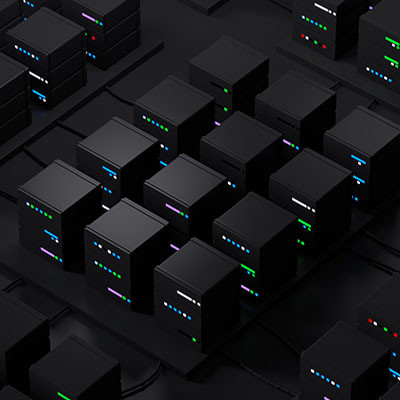Running a business is hard enough without having to think about cybersecurity. Your business faces existential threats from cyberattacks every day it’s operational, as data breaches truly do have the power to bring your business down if you’re not prepared for the fallout. A zero trust approach can help to mitigate many of the risks that come from cybersecurity threats, and it’s all thanks to the principle of least permission.
BlackCSI Blog
When your smartphone battery dies, you’re left feeling inconvenienced and, likely, pretty annoyed. Unless you’re carrying your charger on you at all times, you’ll need to find a solution to your battery charge issues. The solution, like with many other technological issues, is to be proactive and take action to keep your battery from dying in the first place. That’s what we’re here to discuss today.
Technology often finds its way into pop culture, especially television shows that showcase just how technology has impacted people’s lives. It’s something we can all relate to, as we have lived through a time that has seen exponential technological growth, making for some quite popular television shows that span genres. Let’s take a look at three shows that any technology enthusiast will find interesting.
Perhaps the most dangerous and notorious modern malware, ransomware affects businesses and industries without any regard to size or scope. It can even impact individual users and get away with it. We urge businesses to consider the other dangers associated with ransomware beyond just paying the ransom, as they extend far beyond and could have lasting impacts on your operations.
Does your business still use the traditional landline telephone infrastructure that is known to cause a lot of overcomplications with your communications? If so, VoIP could give you the break you need and the opportunity to push past the limitations of your old communications technology. With a cloud-hosted VoIP solution, your business can not only survive…it can thrive!
Are you sure that your business can control all of its data? Are you absolutely certain that it can be accessed when needed? Can you guarantee that it’s as secure as humanly possible, wherever it happens to be? You should be able to answer these questions with an unequivocal and resounding “yes,” yet central data management is far from a simple task.
Your business’ bandwidth could reference a couple of different parts of your IT infrastructure, with the most notable being your network bandwidth and your Internet bandwidth. Today, we want to focus on demystifying your network bandwidth by answering all of the frequently asked questions you might have on the topic.
Most businesses create and hold a lot of data, much of which goes underutilized. Thanks to improved developments in data analytics and business intelligence, more businesses can take advantage of their data to make better decisions and improve operations, thereby increasing profits in the process. At the heart of these developments is data warehousing.
If your business could go about its daily tasks without having to worry about technology, you would find yourself suddenly much more productive and efficient. Think of all the time and money you could save by not reacting to technology problems. With the right tools and approaches, your company can make great strides toward a more proactive technology management model.
It’s no secret that Google has a monopoly on the search engine market, but have you ever wondered how it maintains this stranglehold when other equally capable competitors, like Apple, could produce similar products? Well, it’s not as simple as you might think, and it even involves a considerable amount of funds that influence Apple’s decision.
The more complex and robust your IT infrastructure is, the greater the chances that it will undergo a system failure. Basically, according to Murphy’s Law, if something can go wrong, you should expect it to go wrong. To counteract this mentality with real, tangible methods that you can control, you’ll want to implement solutions that prioritize redundancy. This week’s blog is all about how you can build redundancy into your infrastructure through the use of data backup and restoration systems.
Artificial Intelligence (AI) is one of those monikers that we’ve extended to most machine learning technologies nowadays. Over the past few years, however, AI has made huge strides in industry, providing a level of automation that simply wasn’t possible previously. Couple in the massive benefits that organizations can see through AI-driven data insights and it is truly a transformative technology. This week, we’ll take a look at AI and unpack just how fast it is evolving.
If you spend any amount of time on YouTube, chances are you’ve seen videos bring up the names of various sponsors, including consumer VPNs. VPN providers take advantage of the trendiness of these influencers to spread awareness of their products. We want to make one thing abundantly clear: the consumer VPNs offered by these sponsors are not the kind of VPN your business should be using.
We throw around the term “ransomware” an awful lot, and while we’re confident that most people have some level of familiarity with the concept at this point, it is important that we acknowledge that not everyone has our experience in dealing with it. As such, we wanted to answer some of the questions we hear fairly often about ransomware.
Technology is one part of your business that you can use to improve your capacity for competing with larger organizations and enterprises, even if you are a small team working with local clients. Today, we want to discuss four crucial technologies that any small business needs in order to be as efficient, effective, and most of all, competitive, as possible.
Supply chain management has been a major part of business for quite some time, and technology has played a major part in how it works. Whether it’s people buying or selling goods on the Internet or internally managing their resources, the supply chain is an integral part of any successful business that manufactures or sells products. Let’s look at some of the ways that supply chain management influences businesses–even companies that don’t make or sell products, but still rely on products.
In today’s world of flexible working environments and conditions, you want to be intentional with how you share and distribute access to your company’s data. You’ll need to ensure that you are not accidentally putting your data in harm’s way due to outdated and insecure data retrieval policies and procedures.
In 1996, the United States Congress passed the Health Insurance Portability and Accountability Act, better known as HIPAA, in an attempt to streamline the healthcare system while also maintaining individual privacy of individuals’ health records. This regulation allowed people to more effectively and securely transfer their health coverage without the risk of fraud or abuse of health records. As you can imagine, your technology plays a significant role in making this happen.




















